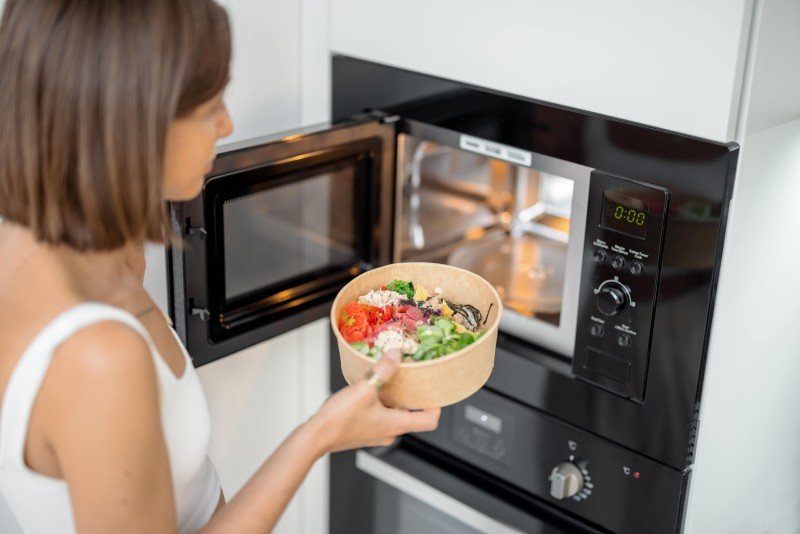You'll Be Unable To Guess Cookers And Hobs's Secrets

Understanding Cookers and Hobs: A Comprehensive Guide
Cooking is an essential aspect of every day life, and the development of kitchen appliances plays a considerable function in how efficiently and efficiently people prepare their meals. Amongst these appliances, cookers and hobs are 2 of the most necessary instruments discovered in contemporary kitchen areas. This post explores the distinctions between cookers and hobs, examines their numerous types, and provides insights on their features, upkeep, and selection procedure.
What are Cookers and Hobs?
Cookers
Cookers are comprehensive kitchen appliances designed for cooking tasks, typically combining an oven and a hob. ovensandhobs.uk are available in various configurations and types, dealing with diverse cooking requirements and preferences.
Hobs
Hobs, on the other hand, are more concentrated home appliances primarily utilized for boiling, frying, and other stovetop cooking methods. Hobs can be standalone systems or an integrated part of bigger cookers.
| Feature | Cookers | Hobs |
|---|---|---|
| Function | Integrates oven and hob | Stovetop cooking only |
| Design | All-in-one unit | Different system or integrated |
| Types | Electric, gas, double fuel | Gas, electric, induction |
| Setup | Permits for more versatility | Built into the countertop |
| Price Range | Usually greater | Differs extensively |
Types of Cookers
1. Electric Cookers
Electric cookers use electrical power as their primary power source. They often feature a built-in oven and numerous cooking zones on the hob.
Advantages:
- Even heat circulation
- Available in different designs (e.g., freestanding, built-in)
2. Gas Cookers
Gas cookers run on natural gas or melted petroleum gas (LPG). They offer instant heat control, making them a favorite amongst professional chefs.
Advantages:
- Instant heat modifications
- More affordable functional expenses
3. Dual Fuel Cookers
Double fuel cookers combine the heat of gas with the effectiveness of electric ovens. This setup permits the very best of both worlds, supplying control and consistent results.
Benefits:
- Flexible cooking choices
- Accurate control over stovetop cooking and baking
4. Range Cookers
Range cookers are larger and more effective than standard cookers, including numerous ovens and hobs for substantial cooking tasks.
Benefits:
- Ideal for large families or cooking for events
- Provides various cooking alternatives in one home appliance
Types of Hobs
1. Gas Hobs
Gas hobs are preferred for their fast heating and strong flame, making them exceptional for scorching and stir-frying.
Benefits:
- Instant heat and control
- Suitable with any kind of cookware
2. Electric Hobs
Electric hobs warm up utilizing electric coils or glass-ceramic surfaces, supplying a contemporary look and efficient cooking.
Advantages:
- Easier to clean
- Uniform surface area ideal for different pots and pans
3. Induction Hobs
Induction hobs use magnetic fields to heat pots and pans directly, offering quickly and energy-efficient cooking.
Advantages:
- Safe (cool surface area after getting rid of pots and pans)
- Energy-efficient and precise
4. Solid Plate Hobs
These conventional hobs utilize solid electric plates that warm up gradually.
Benefits:
- Rugged and long lasting
- Usually more cost effective than other types
Key Features to Consider
When selecting a cooker or hob, several functions should be taken into account:
- Size and Space: Consider the size of your kitchen and the quantity of workspace needed.
- Cooking Style: Choose based on preference-- gas for control, induction for performance, and so on.
- Performance Ratings: Look for energy-efficient designs to reduce energy bills.
- Relieve of Cleaning: Smooth surfaces help with simple maintenance.
- Security Features: Automatic shutoff, flame failure devices, and kid locks boost safety.
Upkeep Tips
Keeping cookers and hobs extends their life-span and guarantees safe operations.
- Regular Cleaning: Wipe down surfaces after use to prevent accumulation.
- Inspect Seals: Check oven door seals frequently for wear and tear to maintain efficiency.
- Service Regularly: Schedule professional maintenance a minimum of when a year.
- Appropriate Cookware: Use pots and pans appropriate for your hob type to avoid damage.
Frequently Asked Questions (FAQs)
What is the difference in between a cooker and a hob?
A cooker integrates an oven and hob in one system, while a hob is normally a standalone appliance for stovetop cooking.
Do I require a professional to set up a gas cooker or hob?
Yes, professional installation is advised for gas appliances to ensure safety and compliance with regional guidelines.
Can I utilize any type of pots and pans on induction hobs?
Induction hobs need magnetic pots and pans. Stainless steel or cast iron pots work best. Non-magnetic products will not warm up.
Are electric cookers more energy-efficient than gas cookers?
While both have advantages, electric cookers tend to be more energy-efficient total, particularly with modern-day, high-efficiency models.
How typically should I clean my cooker or hob?
It is best to clean them after each usage and carry out an extensive cleaning weekly to prevent buildup and residue.
Understanding the distinctions, features, types, and upkeep tips for cookers and hobs is essential for any home cook. By picking the best device matched to their culinary requirements, users can improve their cooking experience, making meal preparation an effective and enjoyable chore. Whether going with the instant control of gas or the streamlined efficiency of induction, picking the proper cooker or hob can cause a notably improved kitchen experience.

